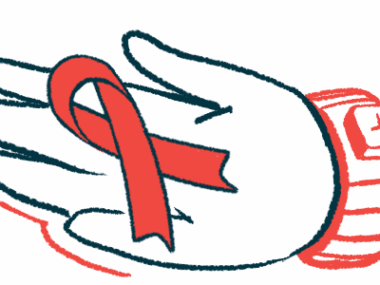Marching into spring with an eye toward raising awareness of NMOSD
For March awareness month, focus will be on NMOSD initiatives
Written by |

March is NMOSD Awareness Month and patients and advocates are planning several initiatives to put a new focus on the progressive autoimmune disease, known fully as neuromyelitis optica spectrum disorder.
Affecting more than 25,000 people worldwide, NMOSD is a disorder characterized by inflammation of the optic nerve — the nerve that sends and receives signals from the eye — and the spinal cord. It leads to issues with vision and the control of muscles, resulting in complications that include visual impairment and mobility loss.
For NMOSD Awareness Month last year — the initiative has been coordinated by The Sumaira Foundation (TSF) since 2016 — recognition was obtained in 40 U.S. states. Now, the foundation is asking the U.S. Senate or House of Representatives to make March a national and permanent awareness month for NMOSD.
The effort aims to increase knowledge about the disease and the needs of the community among lawmakers, pharmaceutical industry representatives, researchers, and healthcare professionals, in addition to the general public.
Putting the focus on neuromyelitis optica spectrum disorder
The Massachusetts-based TSF this year will hold its 6th Annual Gala, with an aim of raising $375,000 to help advance the foundation’s goal to “illuminate the darkness of NMOSD and MOGAD.” Myelin oligodendrocyte glycoprotein antibody-associated disease, known as MOGAD, is a related disorder.
The gala is slated for April 22 at the Newbury Hotel, in Boston. General admission tickets are available at a price of $250 each; the foundation also is accepting donations. NMOSD and MOGAD patients can attend the event free of charge, and a reduced admission price is available for NMOSD/MOGAD clinicians and medical or nursing students.
Together with her daughter Bella, who was diagnosed with NMO in 2017, Neuromyelitis News columnist Candice Galvin attended last year’s 5th Annual NMO Awareness Gala. She chronicled her experiences for what was the duo’s first mother-daughter trip.
“I had never been in a room with so many people who understood exactly what Bella was going through,” Galvin wrote, adding, “The sense of community, love, support, and understanding in the room was incredible.”
That Hollywood-themed event, at the Mandarin Oriental hotel in Boston, raised $220,000 for research into NMOSD and MOGAD.
The sense of community, love, support, and understanding in the room was incredible.
A number of additional events organized by other advocates are on tap for this March.
The international Siegel Rare Neuroimmune Association (SRNA) will kick off the awareness month by holding a virtual NMOSD Together event March 2-3. Patients will have the opportunity to connect with others in the rare neuroimmune disorders community and raise awareness for NMOSD.
The SRNA, founded in 1994, is a nonprofit dedicated to the support of children, adolescents, and adults with a spectrum of rare neuroimmune disorders such as NMOSD and MOGAD, as well as their families.
Its goal is to promote awareness to empower patients, families, clinicians, and scientists, build a collaborative and dedicated clinical care network, and help advance scientific understanding and research.
For this year’s NMOSD Awareness Month, SRNA suggests five things supporters can do to make a difference. This includes sharing the association’s posts and #SharetheFacts, sharing first-hand stories of people living with these conditions via video or in writing, or taking on a challenge and setting up a fundraising page to invite others to contribute and make a difference.
The association also invites patients, caregivers, and advocates to contact their legislators, requesting proclamations to recognize NMOSD Awareness Month in their state, as well as connect and learn from others in the community in upcoming events or support group meetings.
The start of NMOSD Awareness month follows directly on the heels of Rare Disease Day, celebrated worldwide on Feb. 28 this year. Rare Disease Day aims to raise awareness of rare disorders and advocate for health equity for people living with such conditions. The National Organization for Rare Disorders, known as NORD, is the official U.S. partner for the event.
Rare Disease Week is recognized Feb. 28 to March 2 on Capitol Hill in Washington, D.C. The event is hosted by Rare Disease Legislative Advocates, a program of the EveryLife Foundation for Rare Diseases.
Organizers say this is a time for patients and advocates to come together to speak with members of Congress and advocate for changes to healthcare policies. Advocates say patient stories can prove a uniquely powerful means to communicate the daily challenges and struggles of living with a rare disease, as well as establish new relationships to advance awareness efforts in the future.






